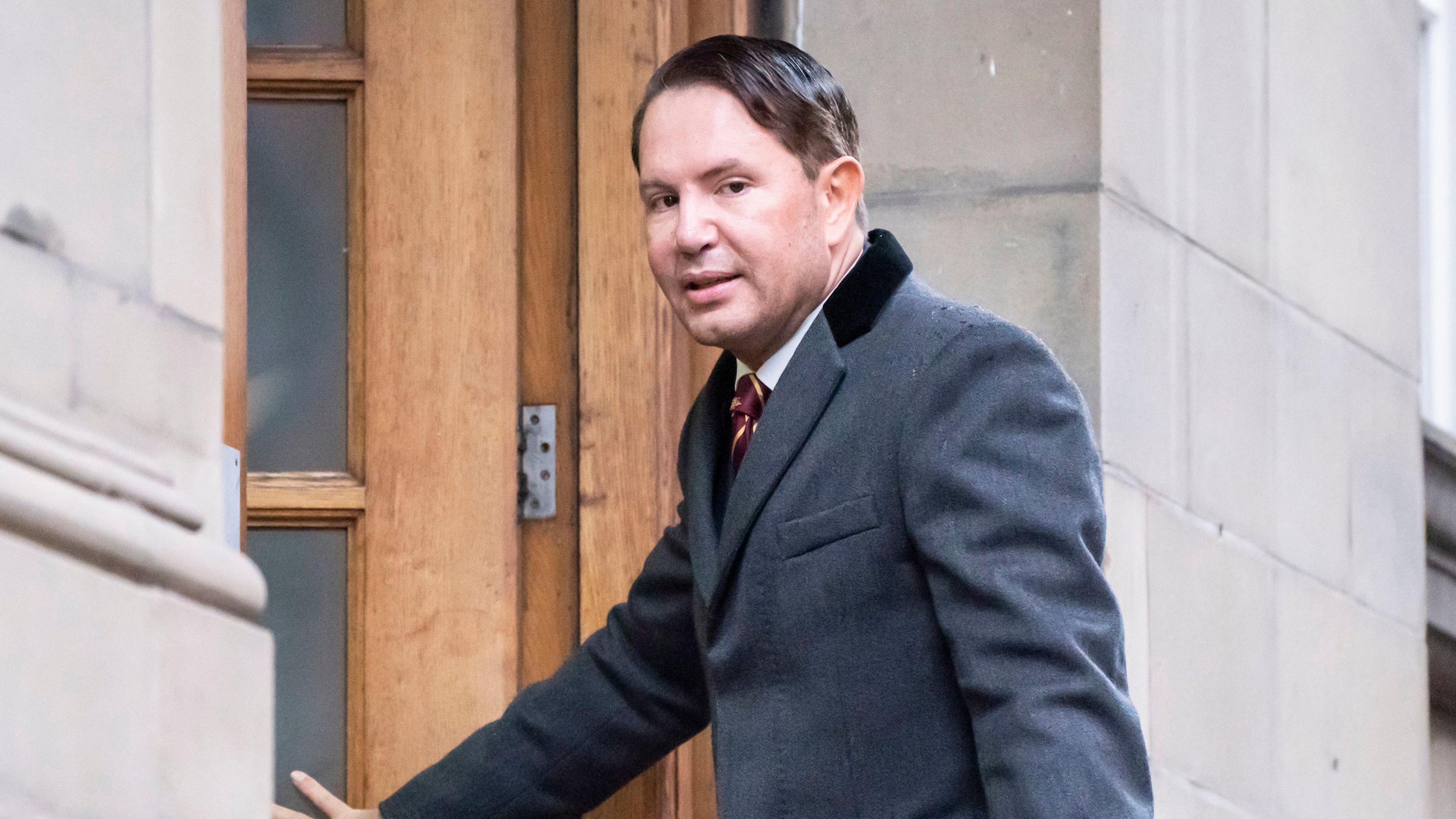Socialite never agreed to 'criminal enterprise' - trial

Mr Stunt gave evidence at Leeds Crown Court on Wednesday
- Published
A socialite accused of leading a money laundering scheme has said he never suspected he was "entering into a criminal agreement" when he went into business with a Bradford-based gold dealer.
James Stunt, 42, is one of five men on trial over the alleged multimillion-pound scheme to turn criminal cash into untraceable gold.
Prosecutors claim Mr Stunt allowed his Mayfair office to be used as a "trusted hub for money laundering" as part of a network which saw £200m from the proceeds of crime laundered over two years.
Mr Stunt and co-defendants Gregory Frankel, 47, Daniel Rawson, 47, Haroon Rashid, 54, and Arjun Babber, 32, who are on trial at Leeds Crown Court, all deny money laundering offences.
The court has heard that between 2014 and 2016, money was brought from across the UK to Bradford jewellers Fowler Oldfield, Mr Stunt's business premises in London, and a company called Pure Nines Ltd, based in Hatton Garden,
The prosecution alleges Mr Stunt and his co-defendants intended to hide the criminal origin of the cash by washing it through a company bank account and using the proceeds to buy gold which was shipped to Dubai.
On Wednesday, Mr Stunt said in evidence that he had started his business, Stunt & Co, as a gold bullion dealer with the intention of sourcing raw gold and turning it into gold bars.
The court heard he built a refinery in Sheffield, where he was introduced to Fowler Oldfield owners Daniel Rawson and Greg Frankel by a contact at the Sheffield Assay Office, who said they were a "very respectable" supplier of scrap gold.
Jurors heard he started a "joint venture" with Fowler Oldfield in 2015 which would see the firm running the refinery and providing scrap gold, while Mr Stunt provided the financial backing.
He said he later accepted a proposal by Mr Frankel and Mr Rawson for their clients' cash to be deposited in his office at Leckonfield House.
He said he was told they had "cash customers" who wanted a place where they could deposit their money in London, before it was collected by G4S or the Post Office.
'Dirty money'
Trevor Burke KC, for Mr Stunt, asked him if he believed he was "entering into a criminal agreement to facilitate the deposit of criminal proceeds of crime".
Mr Stunt replied: "Absolutely not."
Asked if he would ever have agreed to commit a crime, or "suspected he was becoming involved in a criminal enterprise", he again said: "Absolutely not."
When asked if he had "laundered the proceeds of criminal conduct", Mr Stunt gave the same answer.
He told the court he was never in the building when couriers delivered money to his offices.
He said he considered Mr Frankel a friend, letting him live rent-free in his London apartment and helping him lease a Lamborghini.
However, the court heard the relationship deteriorated when some gold went missing in 2016.
Mr Stunt said despite a number of meetings with Mr Rawson and Mr Frankel, he never received a satisfactory answer as to where the gold had gone.
Opening the case to jurors in October, prosecutor Jonathan Sandiford KC said Fowler Oldfield had become the centre of a multimillion-pound money laundering operation by the time police intervened in September 2016.
He said the "dirty money" was delivered by couriers to Fowler Oldfield, Stunt & Co and Pure Nines - before being paid into Fowler Oldfield's bank account.
The trial continues.
Listen to highlights from West Yorkshire on BBC Sounds, catch up with the latest episode of Look North or tell us a story you think we should be covering here, external.